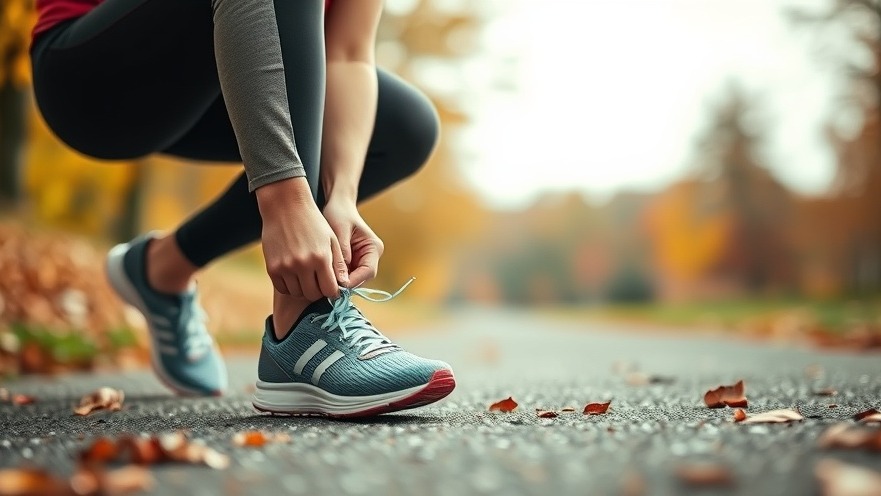
Why Foot and Ankle Health Matters for Runners
Running is not just a pastime for many Australians; it’s a lifestyle choice that promotes cardiovascular health and mental well-being. However, with over 3.4 million people engaging in this vigorous activity in 2024, the risk of foot and ankle injuries looms large. Up to 79% of runners face injuries, with conditions such as shin splints and plantar fasciitis sadly common. Understanding the anatomy of our feet and the mechanics of running can empower us to prevent injuries and enjoy our runs.
How Overuse and Poor Biomechanics Contribute to Foot Injuries
The human body isn’t built for constant pounding on hard surfaces. Common injuries often result from overuse, meaning many runners increase their mileage or intensity too quickly, leading to undue stress on the feet and ankles. Alongside this, individual biomechanics play a critical role. Conditions like flat feet or high arches can lead to misalignment and pain. Awareness of these factors can foster a proactive approach to maintaining foot health.
The Importance of Proper Warm-Up and Cool-Down Routines
Warming up before a run isn't just about getting your heart rate up; it lays the groundwork for a safe and effective workout. Engaging in dynamic stretches—like leg swings and ankle circles—can enhance blood flow to your muscles. A proper warm-up helps increase mobility in the foot and ankle, which is vital for injury prevention. Moreover, skipping the cool-down can result in muscle tightness, which can lead to injuries. Post-run stretching isn’t merely an obligation; it’s essential for recovery.
Choosing the Right Running Shoes: A Game-Changer
Your shoes are your first defense against running injuries. To select the proper footwear, consider a gait assessment to identify your unique foot dynamics. You must choose shoes that cater to your foot type. For instance, those with flat feet often benefit from stability shoes, while runners with high arches require more cushioning. It’s tempting to follow brand popularity or trendy designs, but comfort and proper fit should take precedence. Remember to replace your running shoes every 600-800 kilometers to ensure optimal support.
Utilizing Professional Resources in Podiatry
At your local foot care specialist team, specialists are dedicated to helping runners navigate their journey to optimal foot health. Offering biomechanical assessments and custom orthotics, we specialize in understanding your individual needs. Regular check-ups and consultations can ensure that even subtle foot imbalances are addressed before they escalate into serious problems. We advocate for a holistic approach to foot care, integrating exercises and lifestyle recommendations into our treatments.
Avoid Future Injuries: Actionable Insights for Runners
Incorporating strength training into your routine can significantly decrease the likelihood of injuries. Focus on calf, hip, and core exercises to build a stable foundation. Moreover, being mindful of your running surfaces can alleviate strain. Opt for softer trails when possible and avoid uneven terrains. Your feet endure the repeated impact of every step; treating them with care will revolutionize your running experience.
Embrace a Healthier Running Journey
By understanding the risks associated with running and taking proactive steps to support your feet, you can enjoy a fulfilling, injury-free running journey. Listening to your body and being mindful of your foot health is the key to long-term success. If you’re experiencing foot or ankle pain, don’t hesitate to consult with a podiatrist. Together, we can pave the path to a healthier you.
 Add Row
Add Row  Add
Add 




Write A Comment